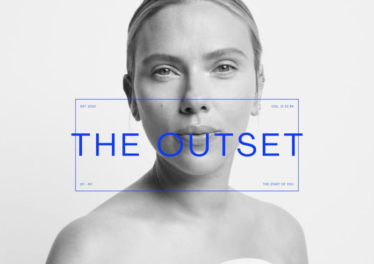This article is republished here from The National Digest
Tracee Elis Ross’ most recent accolades include the hugely successful ABC sitcom Black-Ish, in which she plays the lead and has led to multiple spin-offs such as Grown-Ish, and Mixed-ish. Now, Ross is putting her energy into a project that she’s been working on for the past decade. The company is called Pattern and it’s goal is simple, through its extensive line of products, Ross hopes that Pattern can help women embrace and enhance their naturally curly, coiled, and tight-textured hair all while emphasizing an overall message of empowerment for the culture behind naturally curly hair.
Ross has always been a businesswomen in her own right, she’s applied her professionalism in the shows/movies she works on and also stars in. Her show Black-Ish has shined a spotlight on issues such as police brutality against people of color and slavery. She’s an executive producer for the show and it’s prequel spin-off Mixed-Ish as well. Ross will also be producing a new animated series called Jodie, an MTV Daria spin-off, which she also will provide the lead characters voice for. So when it came time to create and run her own business, she knew she wanted to take her time and do it right.
Ross has claimed that her inspiration to start her own line of hair-care products for textured hair began when she was a teenager and learning how to maintain her natural curls from her mother. “My mother was like, ‘Listen here, little girl, your hair products alone are going to break the bank. You need to get either a really good job or a really rich husband if this is going to keep happening.'” Ross chose option one, and it was after a trip to a famous beauty salon in L.A. that she got the idea to actually create her own brand.
“A man came out of the salon and said to me ‘the amount of women that come in with a picture of you pulled out of a magazine saying they want your hair. If you had hair products, you would be a millionaire.’ Afterwards I thought ‘Hmm, could I make hair products? That’s so interesting,'” Ross said to Entrepreneur Magazine.
At that point in time, 2008, Ross was still styling her own hair on every acting job she had. Ross went on to explain that for black and brown women, wearing your natural hair is about more than just aesthetics, it’s a political statement charged with self-acceptance, and she wanted to carry that same message into Pattern.
At the time, and arguably now as well, only a few products existed in mainstream consumer culture for black women’s natural hair maintenance, and according to Ross, none of them really worked well, at least for her. So she wanted to create a beauty company for hair products that advertised emphasizing natural features. “You don’t need to do a con job [on customers]: ‘You’re so ugly, you need this.’ Like, no! ‘You’re gorgeous. Do you want stuff to support your gorgeousness?’ That’s it to me,” and thus, Pattern was born.
Ross was initially approached by two large beauty companies to collaborate on the project with, but she denied the collaborations as she wanted to be in full creative control on the creation of her company and where she wanted it to end up before bringing in outside expertise. While working on her company’s message, she realized she had to come to her own conclusions about how she views herself in terms of natural beauty, race, and society’s perception on those things in relation to Ross specifically. After she reached these conclusions, she approached Ulta Beauty about a retail opportunity for Pattern, to which they gladly agreed too.
“What instantly struck me about Tracee was her passionate advocacy for inclusivity that comes through in everything she does. But what’s unique about Tracee is [her] personal passion and authenticity, because she came at it from a place of sharing her own story, and she has a remarkable ability to connect with people. We were confident from day one that she would be successful,” saysUlta CEO Mary Dillon.
From that point forward, Ross began meeting with chemists and different labs to work on the manufacturing side of things. She started with the basics, a shampoo and conditioner in which she personally tested every formula. At this point Ross brought in an operational partner who shared her passion to help bring her products into fruition. “I’ll just never forget sitting there and hearing Tracee speak, we needed to make sure to find a true business partner, not just a celebrity talent who will lend some photo shoots and social media power. So for me it was just like this angel fell out of the sky,” says Shaun Neff, cofounder of Beach House Group, a company that incubates celebrity-driven brands.
Now, Pattern was officially born, and it was time to share it with the world. The first promotional images for the brand included Ross posing nude with the tagline “sometimes it’s just about the hair.” To get the message out there, she also invited 20 major beauty editors to come and literally watch her take a shower. The goal was to show the experts firsthand how these products were meant to be used, and the powerful positive effects they had.
Within minutes of Pattern’s online launch products were flying off the shelves, figuratively speaking, and a week later, Pattern launched in over 1,200 Ulta stores. As Ross continues to grow her business and the individuals involved in it, she’s determined to keep her team diverse in terms of race, age, background, and hair type as a means of working “against the blind spots each of us inevitably has,” in terms of empathy.
“There are so many products for other hair, like, so many. The dreams I have for expanding what we’re doing right now — I mean, there’s so much to do in this market,” says Ross. The natural hair product market for people of color is predicted to grow by 11% to nearly $2 billion by 2024, according to the 2019 Mintel report. Ross has placed herself in one of the top-tier positions for the market, and only time will tell how much larger her and her company will grow. If one thing’s for certain, she definitely listened to her mother when it came to becoming The Boss.


